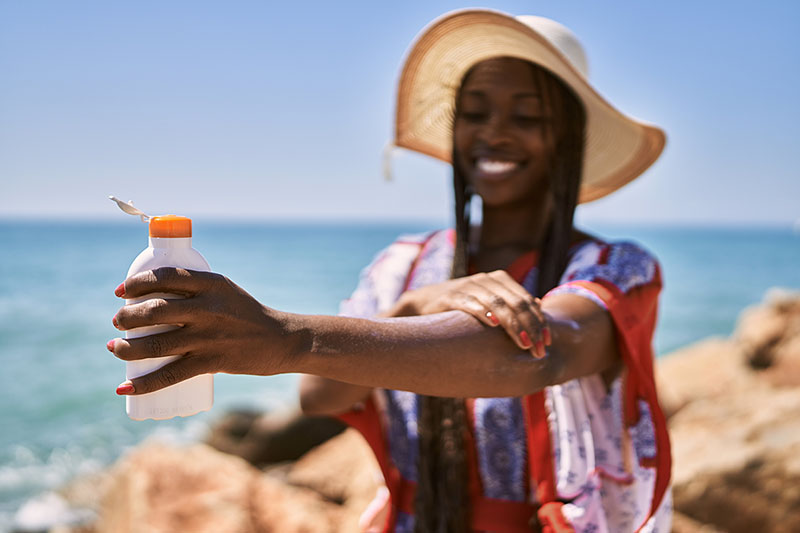All You Need to Know About Sunscreens
Be sure to slather on sunscreen daily to reduce your risk of developing skin cancer.

About 46% of Americans don’t use sunscreen. Not regularly using sunscreen can increase your risk of developing skin cancers like squamous cell carcinoma by 40% and melanoma by 50%. Skin cancer is not only the most commonly diagnosed cancer in the world, but it is also the most preventable one.
Over 9,000 Americans are diagnosed with some form of skin cancer every single day, and more than two people die of the disease each hour. Taking a few short minutes to apply it could save your life.
But with the store shelves filled to the brim with sunscreens, it can be difficult to know which one is best for you, so here are a few facts about sunscreens to keep in mind.
What are the types of sunscreens?
Ultraviolet (UV) radiation is the main cause of skin cancer and includes UVA and UVB rays. Both are harmful to the skin. UVA is linked to premature aging of the skin while UVB is associated with skin burning.
There are two main types of sunscreens available that block these dangerous UVA and UVB rays.
- Mineral (or physical) sunscreens
Mineral sunscreens contain ingredients like zinc oxide and titanium dioxide. The formula is made to sit on the skin’s surface to block ultraviolet rays.
These sunscreens are usually on the thicker side and leave a white cast on the skin because of the main ingredients. They are used mostly by people who are concerned about prolonged sun exposure because they begin protecting immediately after application.
- Chemical sunscreens
Chemical sunscreens, on the other hand, are absorbed into the skin and absorb UV rays as well. They convert the rays into energy and heat and then release them before they can harm the skin.
Most chemical sunscreens are made specifically for the face because they are lighter and clearer than their mineral counterpart. However, one downside is that it takes time for them to absorb into the skin to be effective, so they must be applied at least 20 to 30 minutes before sun exposure.
Which kind is better?
Experts agree that both mineral and chemical sunscreens are effective at keeping your skin from catching too many rays. However, studies show that mineral is a safer and more effective option long term. It is also preferred for those with sensitive, easily irritated skin because the formula remains on top of the skin’s surface as opposed to being absorbed.
Related: How to Choose Sunscreen and When To Reapply
What about SPF?
The Skin Cancer Foundation recommends applying a waterproof sunscreen with at least SPF 30 for any extended outdoor activity and reapplying every two hours or as needed.
They also recommend wearing sunscreen daily, not just when you’re preparing for a hike or a beach day. You can take extra precautions by wearing sunglasses, hats, and even SPF-infused lip balms to make sure all the itty-bitty parts of your skin are covered and protected.
Skin cancer can be prevented by applying sunscreen to your body every day. And don’t forget to make an appointment with your dermatologist for regular skin cancer screenings to keep things in check.
Related: Stay Safe This Summer and Protect Your Body from the Sun's Harmful Rays
Ready to schedule a skin consultation? Select Health members can use the Find a Doctor tool to discover an in-network skin cancer specialist.

